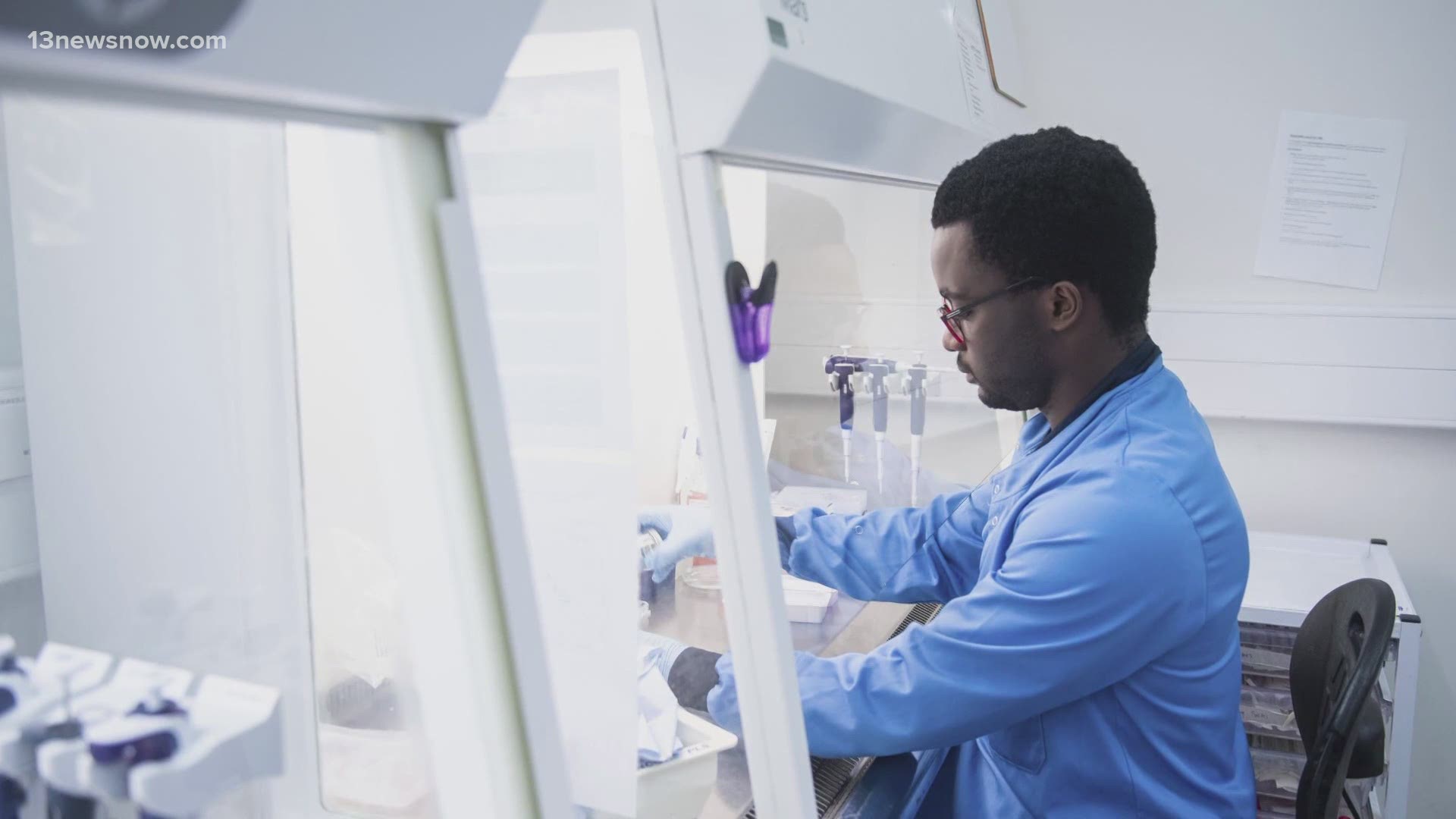NORFOLK, Va. — A COVID-19 vaccine could be available by the end of the month, but studies show a lack of trust in the vaccine among people of color, who are at the same time disproportionately impacted by the coronavirus.
A study by the NAACP and COVID Collaborative found only 14 percent of Black Americans and 34 percent of Latino Americans trust a vaccine will be safe. Eighteen percent and 40 percent, respectively, trust the vaccine will be effective, according to the survey.
“You have a portion of people who are afraid to take it because they don’t know the data and they want to wait to see the first round and second round,” said Gaylene Kanoyton, president of Celebrate Healthcare and president of the Hampton NAACP chapter.
“Then we have another half, 50 percent of folks, saying, 'Wait a minute is it going to be a disparity? Is there going to be equity in the distribution or are we going to be the last ones to get it?'”
In another recent survey, when asked if they would get vaccinated if it was free and determined safe by scientists, only 17 percent of Black adults said, yes, which is 20 percent lower than both White and Hispanic adults.
In some ways – especially in the Black community – the source of the distrust can be traced back generations, say experts.
Dr. Cassandra Newby-Alexander, dean of the College of Liberal Arts at Norfolk State University, says distrust among Black Americans stems from a history of being denied access to medical care or experiencing mistreatment in care dating back to slavery.
“These are longstanding problems that continue to exist and as a result of that, African-Americans are typically a little suspicious of the medical community,” said Newby-Alexander.
She cited statistics revealing a higher mortality rate among Black women in childbirth and in receiving C-sections, and studies showing Black Americans are less likely to be prescribed pain medications.
In some cases, the source of distrust dates back generations, like the Tuskegee syphilis experiments of the 1930s. The Public Health Service and the Tuskegee Institute conducted studies on the nature of syphilis on 600 Black men. However, researchers were not truthful about the study and did not receive the patients’ informed consent. The men did not receive proper treatment needed to cure their illness.
The study lasted for 40 years, according to the CDC.
“The Tuskegee experiment was part of a long continuum on efforts on the part of White Americans to experiment on African-Americans,” said Newby-Alexander.
And that is part of the reason Black people struggle to trust health care professionals, especially those who are not of their race and ethnicity, she said.
Earlier this week, Governor Ralph Northam acknowledged the issue and said his team is working on a plan to involve local leaders.
“We will be reaching out to our community leaders and faith leaders to help people be comfortable with this,” he said Wednesday. Northam referenced a similar strategy earlier this year to encourage communities of color to participate in COVID-19 testing.
On Friday, President-Elect Joe Biden said equity must be prioritized in any vaccine distribution plan, as Black Americans are dying at three times the rate of White Americans.
“We have to figure out how to get the vaccine to those communities,” said Biden.
Kanoyton, who lost her mother to COVID-19 and is organizing a webinar with the Governor next week, says many people need to know the data before they can trust leaders and the vaccine.
“This train is moving fast and so we have to get this information out now about this vaccine, whether you want to take it or not, you need to know the facts,” she said.
The free webinar will take place 7 p.m. Monday and is hosted by Celebrate Healthcare and the Hampton Links. It will feature key facts and issues facing people of color when it comes to the vaccine and will include Gov. Northam, along with a range of state and local experts.
It will be hosted by 13News Now anchor Janet Roach.
For more information, click here.

